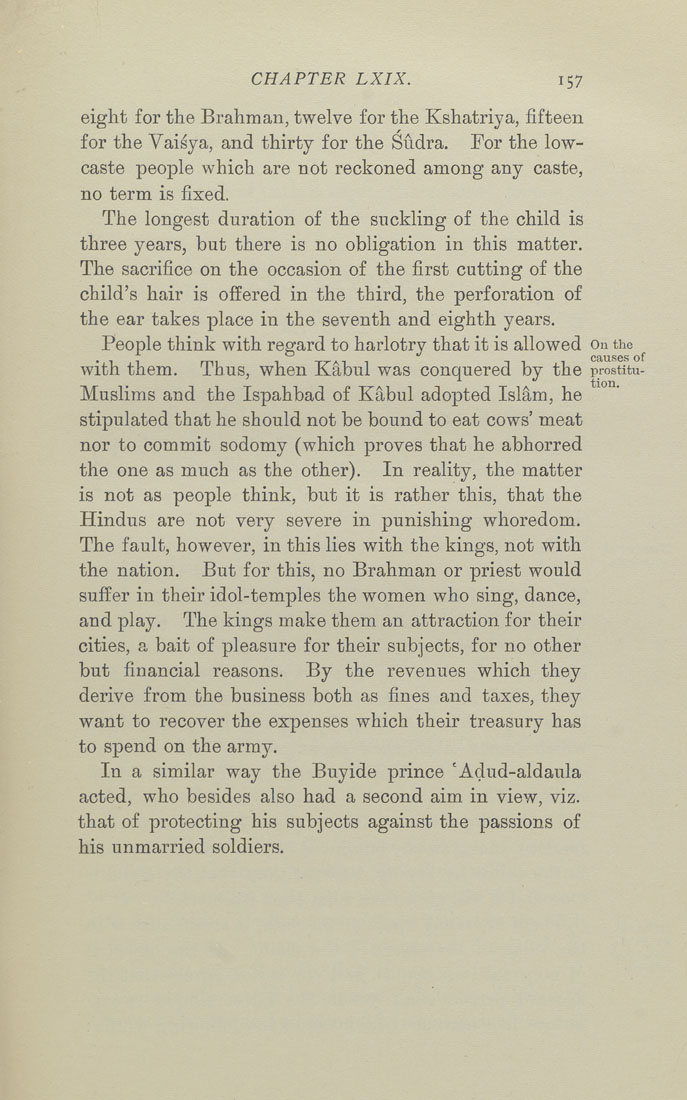CHAPTER LXIX. 157
eight for the Brahman, twelve for the Kshatriya, fifteen
for the Vaisya, and thirty for the Sudra. For the low-
caste people which are not reckoned among any caste,
no term is fixed.
The longest duration of the suckling of the child is
three years, but there is no obligation in this matter.
The sacrifice on the occasion of the first cutting of the
child's hair is offered in the third, the perforation of
the ear takes place in the seventh and eighth years.
People think with regard to harlotrv that it is allowed on the
• 1 1 mi 1 T7-A1 ^ "" -111 causes of
With them. Thus, when Kabul was conquered by the prostitu-
Muslims and the Ispahbad of Kabul adopted Islam, he
stipulated that he should not be bound to eat cows' meat
nor to commit sodomy (which proves that he abhorred
the one as much as the other). In reality, the matter
is not as people think, but it is rather this, that the
Hindus are not very severe in punishing whoredom.
The fault, however, in this lies with the kings, not with
the nation. But for this, no Brahman or priest would
suffer in their idol-temples the women who sing, dance,
and play. The kings make them an attraction for their
cities, a bait of pleasure for their subjects, for no other
but financial reasons. By the revenues which they
derive from the business both as fines and taxes, they
want to recover the expenses which their treasury has
to spend on the army.
In a similar way the Buyide prince 'Adud-aldaula
acted, who besides also had a second aim in view, viz.
that of protecting his subjects against the passions of
his unmarried soldiers.
|








